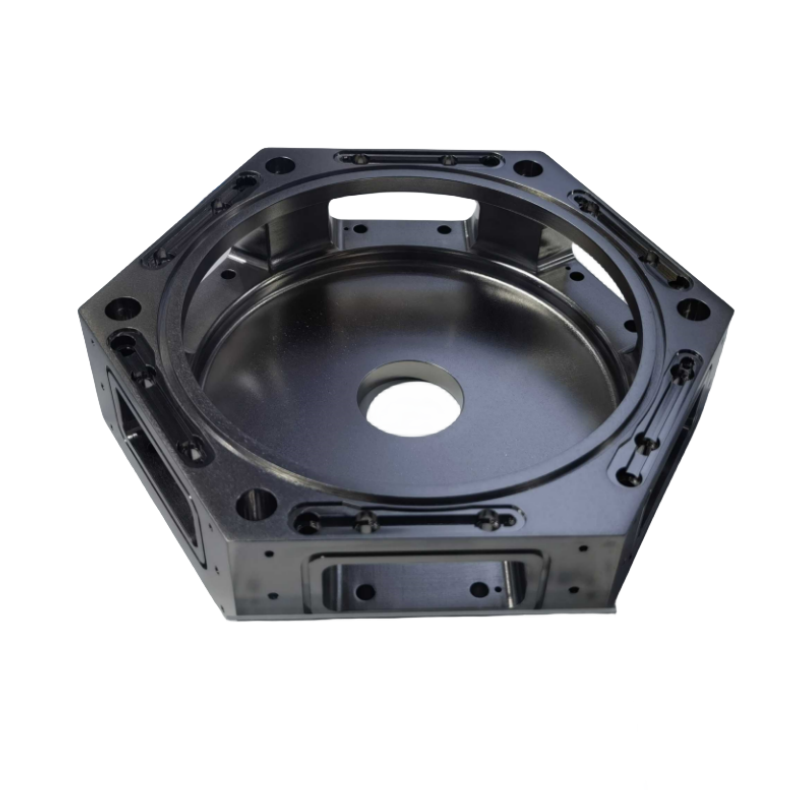As a leading provider of premium aluminum materials and precision CNC machining services, Shanghai Miandi Metal Group Co., Ltd. specializes in delivering high-performance aluminum alloys optimized for CNC milling, turning, and fabrication. Whether you need lightweight components with intricate geometries or high-strength parts for demanding industries, our expertise in alloy selection and machining ensures unmatched precision and reliability.
1. Key Aluminum Alloys for CNC Machining
CNC machining requires alloys that balance machinability, dimensional stability, surface finish, and mechanical properties. Below are the most widely used aluminum series and their unique advantages:
a. 6000 Series Aluminum (6061, 6063)
Core Composition: Silicon (Si) and magnesium (Mg) as primary alloying elements (e.g., 6061: 0.6% Si, 1.0% Mg).
Machinability: Excellent chip formation and low cutting forces, ideal for high-speed CNC operations. Smooth surface finish (Ra ≤ 1.6μm) achievable without extensive post-processing.
Mechanical Properties: Moderate strength (UTS: 260–310 MPa in T6 temper), good corrosion resistance, and weldability. Heat-treatable (T4/T6 tempering) for enhanced hardness and structural integrity.
Typical applications: Aerospace brackets, automotive components, robotics parts, and aluminum extrusions.
Why Choose Us: We offer 6061-T6/T651 aluminum plates/rods with tight dimensional tolerances (±0.01 mm), ready for high-precision CNC milling.
b. 7000 Series Aluminum (7075)
Core Composition: Zinc (Zn) as the primary strengthener, with Mg and Cu (e.g., 7075: 5.6% Zn, 2.5% Mg).
Machinability: Higher hardness than 6000 series requires carbide or PCD tools, but offers superior cutting precision for complex shapes. Excellent resistance to deformation during heavy machining.
Mechanical Properties: Ultra-high strength (UTS: up to 572 MPa in T651 temper), making it stronger than many steels while remaining lightweight. High fatigue resistance, critical for aerospace and high-stress industrial applications.
Typical applications: Aircraft structural parts (e.g., wing components), motorsport chassis, and precision molds.
Our Advantage: Premium 7075-T651 aluminum rods/plates with stress-relieved annealing, minimizing machining-induced warpage.
c. 2000 Series Aluminum (2024)
Core Composition: Copper (Cu)-based with Mg/Mn (e.g., 2024: 4.4% Cu, 1.5% Mg).
Machinability: Good machinability (especially in annealed states) for CNC turning and milling, though harder tempers (T8) require robust tooling. Capable of achieving tight tolerances for aerospace-grade components.
Mechanical Properties: High strength (UTS: 470–485 MPa in T351 temper) and excellent fatigue resistance. Heat-treatable for optimized hardness in load-bearing applications.
Typical application: Aircraft wing spars, landing gear parts, and high-performance mechanical components.
d. 5000 Series Aluminum (5052, 5083)
Core Composition: Magnesium (Mg)-rich (e.g., 5052: 2.5% Mg).
Machinability: Soft and ductile, ideal for CNC forming and bending without cracking. Excellent surface finish for decorative or corrosion-sensitive parts.
Mechanical Properties: Moderate strength with exceptional corrosion resistance (ideal for marine or outdoor environments). Non-heat-treatable, but work-hardening enhances durability.
Typical application: Boat hulls, chemical equipment, and CNC-machined decorative components.
Our Offer: 2024-T351 aluminum plates certified for aerospace standards (e.g., AMS 4042).
2. CNC Machining Advantages of Aluminum Alloys
a. Material Properties Optimized for Precision
Low Density: 2.7 g/cm³ (1/3 the weight of steel), reducing inertia for faster machining and lighter end products.
Thermal Conductivity: High heat dissipation minimizes tool wear and thermal deformation during high-speed cutting.
Isotropic Behavior: Uniform mechanical properties in all directions, ensuring consistent machining results.
b. Machining Efficiency & Cost-Effectiveness
High Cutting Speeds: Aluminum allows feed rates up to 5000 mm/min (depending on alloy), reducing cycle times.
Tool Compatibility: Compatible with carbide, HSS, and PCD tools, offering flexibility for roughing and finishing operations.
Chip Control: Ductile alloys like 6061 produce continuous chips, while free-machining grades (e.g., 6061 with added Pb/Bi) generate breakable chips for automated machining.
c. Post-Processing Flexibility
Surface Finishing: Anodizing, powder coating, electroplating, or bead blasting to enhance aesthetics and corrosion resistance.
Heat Treatment: Custom tempering (e.g., T6) to achieve target hardness and stress relief after machining.
3. Shanghai Miandi’s CNC Machining Solutions for Aluminum
Leverage our end-to-end capabilities to transform aluminum alloys into precision components:
a. Material Supply
Full series of aluminum alloy: 6061, 7075, 2024, 5052 in plates, rods, tubes, and custom extrusions, sourced from certified mills.
Temper Options: Annealed (O), solution-treated (T4), aged (T6), and stress-relieved (T651) to meet machining and performance requirements.
b. Precision CNC Services
Machining Capabilities:
3/4/5-axis CNC milling for complex geometries (e.g., aerospace brackets, medical devices).
CNC turning for shafts, hubs and cylindrical parts (tolerance: ±0.005 mm).
Swiss machining for micro-precision components (diameter: 0.5–20 mm).
Auxiliary process: Drilling, tapping, threading, broaching and EDM for intricate features.
c. Quality Assurance
ISO 9001:2015 Certified: Rigorous inspection of material chemistry, mechanical properties, and dimensional accuracy (CMM/optical measurement).
DFM Support: Free design-for-machining consultation to optimize part geometry for cost and efficiency.
d. Customization & Scalability
Small batch sampling to high-volume production, with rapid turnaround (7–10 days for prototypes).
Industry compliance: Materials certified to ASTM, AMS, GB, or ISO standards, with traceability documentation for aerospace and automotive clients.
4. Why Choose Aluminum for CNC Machining?
Weight-Strength Balance: Ideal for applications where lightweight design is critical (e.g., aerospace, drones).
Cost-Effective: Lower material and machining costs than titanium or steel, with excellent recyclability.
Design Freedom: Complex shapes, thin walls, and tight tolerances achievable with modern CNC equipment.
Contact Shanghai Miandi Today for tailored CNC machining solutions using premium aluminum alloys. Whether you need a single prototype or mass-produced components, our expertise in alloy selection, machining precision, and quality control ensures your project succeeds.
Shanghai Miandi Metal Group Co., Ltd. – Precision in Every Cut.
Media Contact
Company Name: Shanghai Miandi Metal Group Co., Ltd
Email: Send Email
Country: China
Website: https://www.aviationaluminum.com/

